Roads Australia strives to achieve a robust integrated transport system for people and freight that values and invests in all modes of land transport.
We uphold the principles of a safe, inclusive, sustainable, economic and socially valuable roads industry for all Australians.
Learn more about our Policy Streams below.
Our Policy Streams
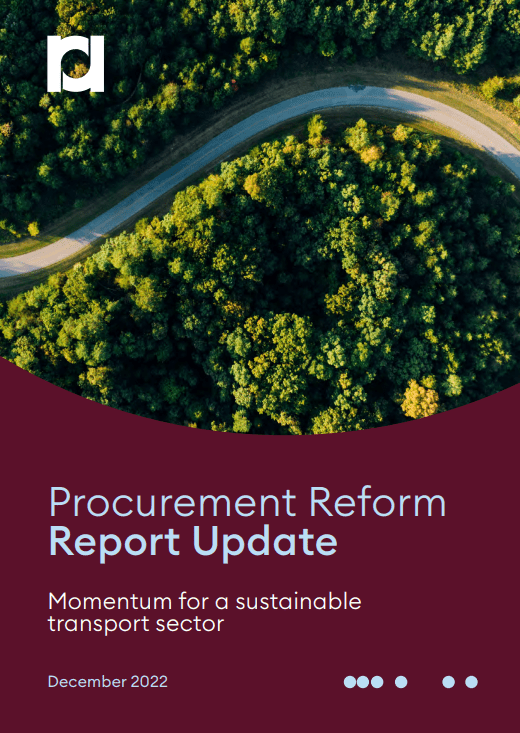
Procurement Reform Report Update: Momentum for a sustainable transport sector
RA’s Procurement Reform Report Update: Momentum for a sustainable transport sector contains 28 recommendations for reform across core areas of procurement that are designed to foster collaboration, promote innovation, manage risks more effectively and help build a stronger, more diverse workforce for the sector.
It builds on the reform ideas first put forward in RA’s Procurement Reform Report: Recommendations and Strategies in September 2020 and adapts them to reflect prevailing market conditions, as industry grapples with challenges that include supply chain disruptions, high inflation and a tightening labour market.
Read the report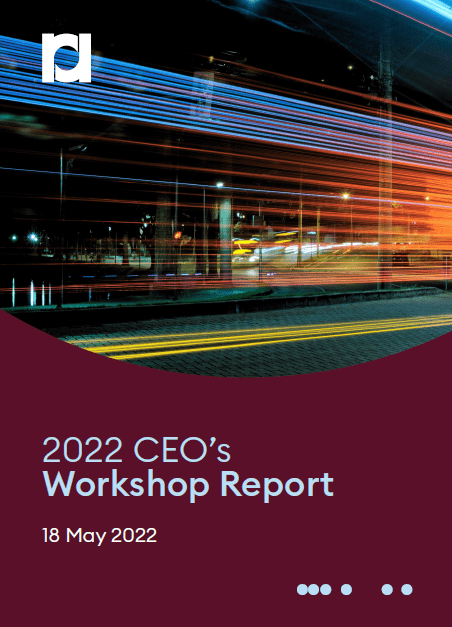
2022 CEO’s Workshop Report
This report sets out the priority actions identified by participants in the 2022 CEO’s Workshop and is being used to design the work program for RA’s five policy streams for 2022/23.
The actions identified are also being used by RA to connect better with industry, government, and the communities that we serve.
Download the report
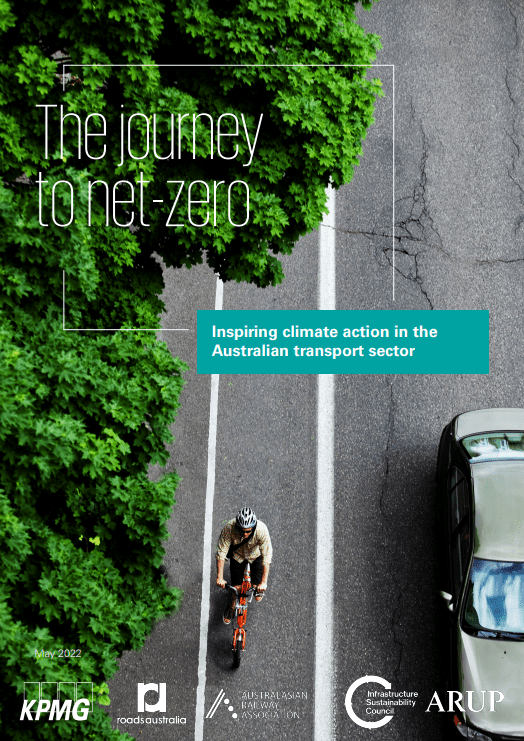
The journey to net-zero
The journey to net-zero – Inspiring climate action in the Australian transport sector was delivered as part of an industry-first partnership between the Australasian Railway Association (ARA), Infrastructure Sustainability Council (ISC) and Roads Australia (RA), and includes 46 recommendations to accelerate decarbonisation in the sector.
The report, authored by KPMG and sponsored by Arup, analysed local and global examples of leading best practice, and features 29 case studies demonstrating existing technology and strategies for carbon reduction.
Download the report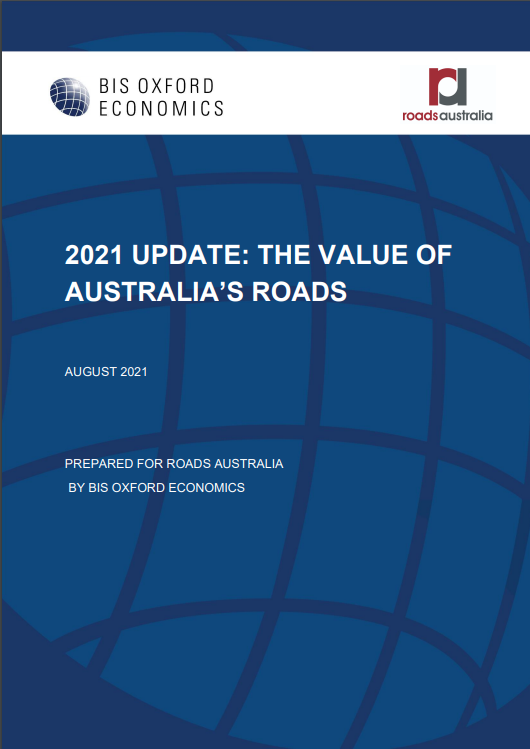
2021 Update: The Value of Australia’s Roads
Roads Australia has commissioned research which highlights the growing importance of roads to our economy and our community.
Undertaken by BIS Oxford Economics, this study updates the 2019 report, “The Economic Impact of Australia’s Roads”, and includes an expanded discussion of the economic benefits of the road network in the context of the strong program of upcoming government investment.
Download the study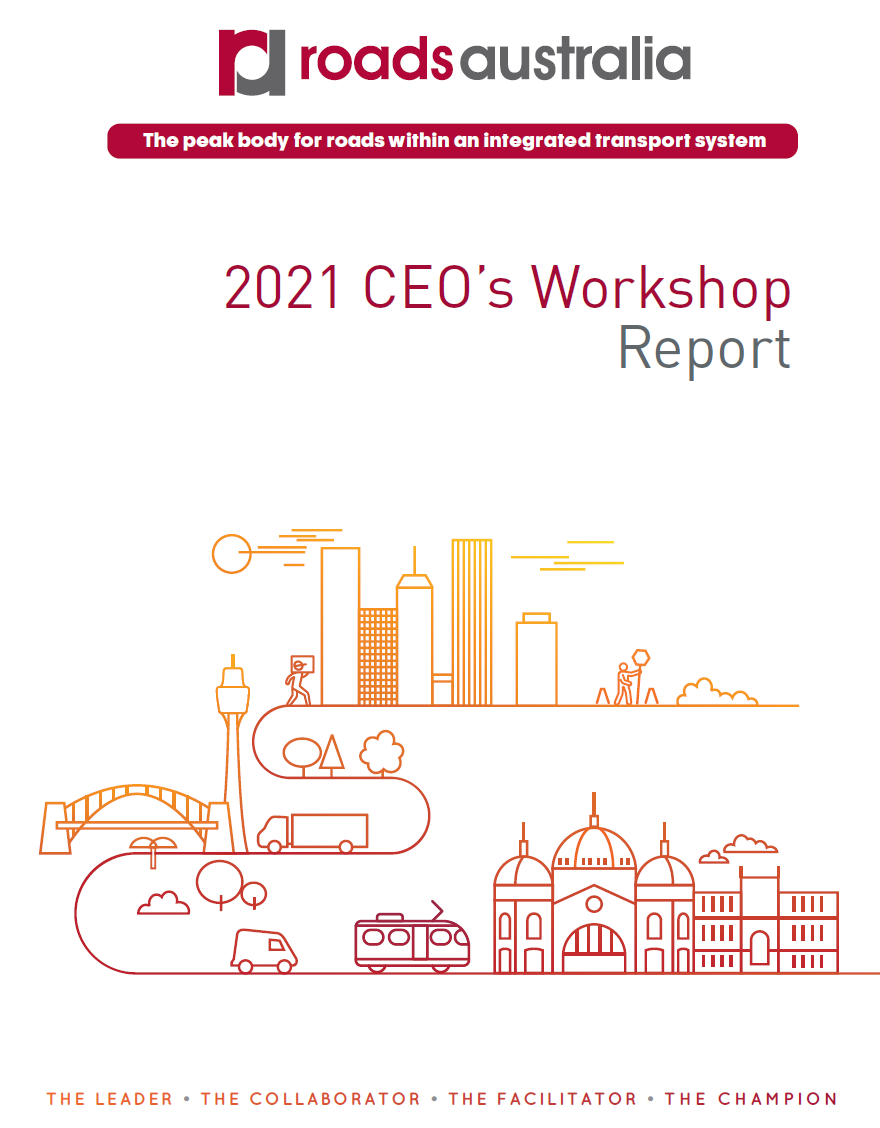
2021 CEO’s Workshop Report
RA’s CEO’s Workshop each year brings together senior leaders from the public and private sector to sit down and collaboratively identify opportunities for RA to develop policy solutions to challenges now confronting our industry.
The Report from the 2021 CEO’s Workshop held on 16 June in Sydney is now available.
Download the 2021 CEO’s Workshop Report
Roads Australia Procurement Reform Report
Released in September 2020, the Roads Australia Procurement Reform Report identifies significant opportunities for improvement in the way we plan and deliver transport infrastructure projects.
The Report was developed through an extensive engagement with national and regional industry stakeholders across engineering and design consulting firms, project managers, legal and commercial advisors, government agencies, and construction and related services companies.
The Report makes 22 recommendations to be pursued in order to ensure that governments get best value for money and industry gets the best use of its capital and people.
Read the report



